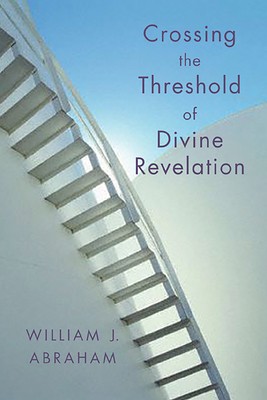
- We will send in 10–14 business days.
- Author: William J Abraham
- Publisher: William B. Eerdmans Publishing Company
- ISBN-10: 0802829589
- ISBN-13: 9780802829580
- Format: 15.4 x 23 x 1.5 cm, softcover
- Language: English
- SAVE -10% with code: EXTRA
Reviews
Description
The last few decades have seen a revolution in debates about the rationality of Christian belief. Among the array of current options for justifying religious belief, however, nearly every one assumes that a general theory of knowing and a minimal version of theism must be adopted before the rationality of Christian belief can be tackled.
In Crossing the Threshold of Divine Revelation William J. Abraham confronts both of these assumptions, arguing that epistemology must begin with its particular target of inquiry -- in Abraham's case the full-blooded "canonical theism" of the early, undivided Christian church. He argues, moreover, that special divine revelation forms a crucial threshold at the entrance to the epistemology of Christian belief. Sure to intrigue philosophers, theologians, and curious students, Abraham's robust vision of Christian faith provides a creative solution to many of the current difficulties in philosophy and theology.EXTRA 10 % discount with code: EXTRA
The promotion ends in 20d.07:19:47
The discount code is valid when purchasing from 10 €. Discounts do not stack.
- Author: William J Abraham
- Publisher: William B. Eerdmans Publishing Company
- ISBN-10: 0802829589
- ISBN-13: 9780802829580
- Format: 15.4 x 23 x 1.5 cm, softcover
- Language: English English
The last few decades have seen a revolution in debates about the rationality of Christian belief. Among the array of current options for justifying religious belief, however, nearly every one assumes that a general theory of knowing and a minimal version of theism must be adopted before the rationality of Christian belief can be tackled.
In Crossing the Threshold of Divine Revelation William J. Abraham confronts both of these assumptions, arguing that epistemology must begin with its particular target of inquiry -- in Abraham's case the full-blooded "canonical theism" of the early, undivided Christian church. He argues, moreover, that special divine revelation forms a crucial threshold at the entrance to the epistemology of Christian belief. Sure to intrigue philosophers, theologians, and curious students, Abraham's robust vision of Christian faith provides a creative solution to many of the current difficulties in philosophy and theology.

Reviews